Engineering Design

Educators and Parents, Sign Up for The Cheat Sheet
Weekly updates to help you use Science News Explores in the learning environment
Thank you for signing up!
There was a problem signing you up.
-
 Tech
TechA shape-shifting robotic tooth-cleaner might one day brush for you
A swarm of billions of magnetic, bacteria-killing nanoparticles can be shaped into bristles to fit any surface, including between teeth.
-
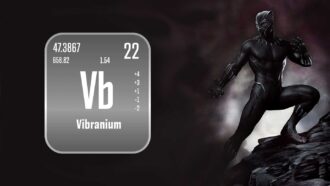 Chemistry
ChemistryCould we make vibranium?
The ‘perfect’ metal may belong to the fictitious Marvel world of Wakanda, but scientists hope to one day mimic some of its key traits.
By Anil Oza -
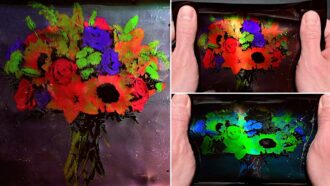 Materials Science
Materials ScienceThese fabrics change color as they stretch
Stretchy, color-shifting cloth may lead to new art, fashions and sensors. A century-old Nobel-prize-winning invention served as its inspiration.
-
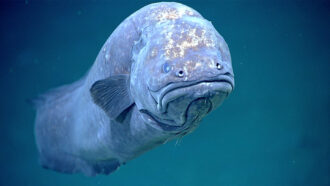 Animals
AnimalsSea creatures’ fishy scent protects them from deep-sea high pressures
TMAO’s water-wrangling ability protects a critter’s critical proteins — including muscle — from crushing under deep ocean pressures.
-
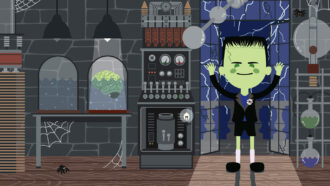 Life
LifeLet’s learn about modern Frankensteins
Modern scientists are creating strange new combinations of living tissue and trying to give dead things new life.
-
 Tech
TechCan computers think? Why this is proving so hard to answer
In 1950, Alan Turing proposed a test to tell a human from a computer. Today, that Turing test may tell us more about ourselves than about machines.
-
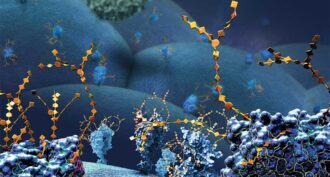 Chemistry
ChemistryLego-like way to snap molecules together wins 2022 chemistry Nobel
This so-called ‘click chemistry’ allows scientists to build complex molecules in the lab and in living cells.
By Meghan Rosen and Nikk Ogasa -
 Animals
AnimalsScience is just starting to understand what animals feel
Animal-welfare researchers are studying the feelings and experiences of horses, octopuses and more.
-
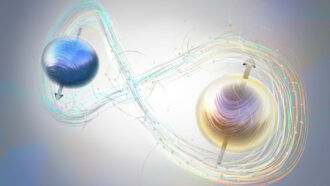 Physics
PhysicsExperiments on ‘entangled’ quantum particles won the physics Nobel Prize
Three pioneers in quantum physics share the 2022 Nobel Prize in physics.
By James R. Riordon and Maria Temming -
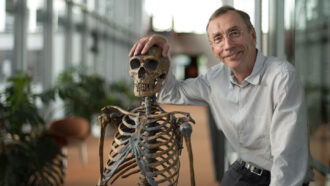 Health & Medicine
Health & MedicineExamining Neandertal and Denisovan DNA wins a 2022 Nobel Prize
Svante Pääbo figured out how to examine the genetic material from these hominid ‘cousins’ of modern humans.
By Tina Hesman Saey and Aimee Cunningham -
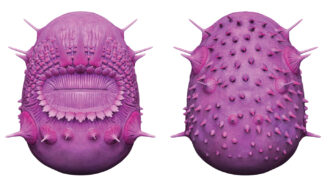 Fossils
FossilsBizarre ancient critter has spines but no anus
The spiny discovery moves this minion lookalike off a distant limb on the human family tree.
By Anna Gibbs -
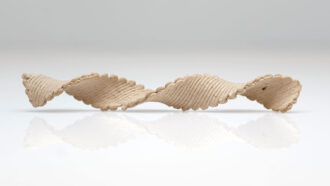 Tech
TechNo trees were harmed to 3-D print this piece of wood
How clever! Scientists used print-speed adjustments to control how flat, 3-D printed shapes morph into complex wooden objects.